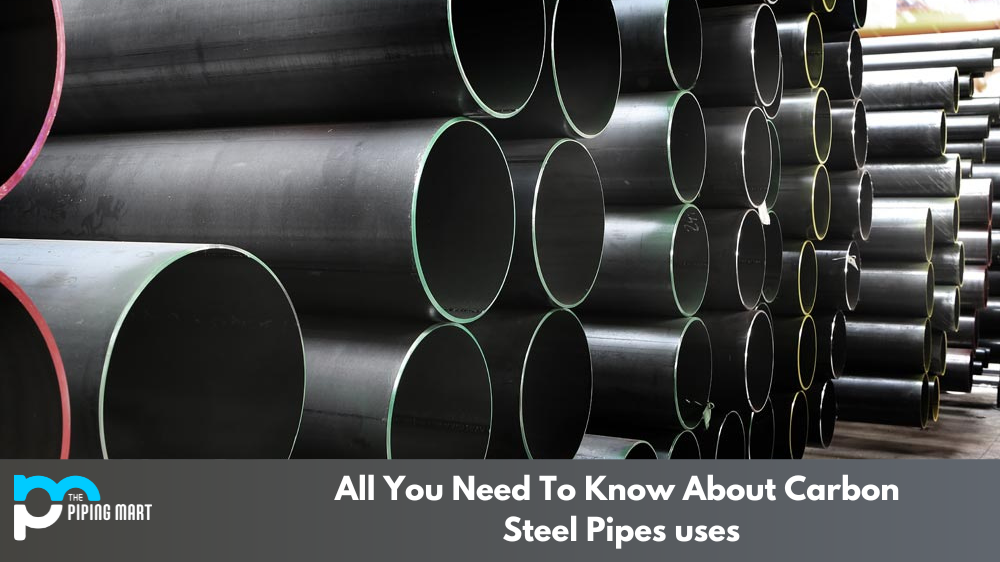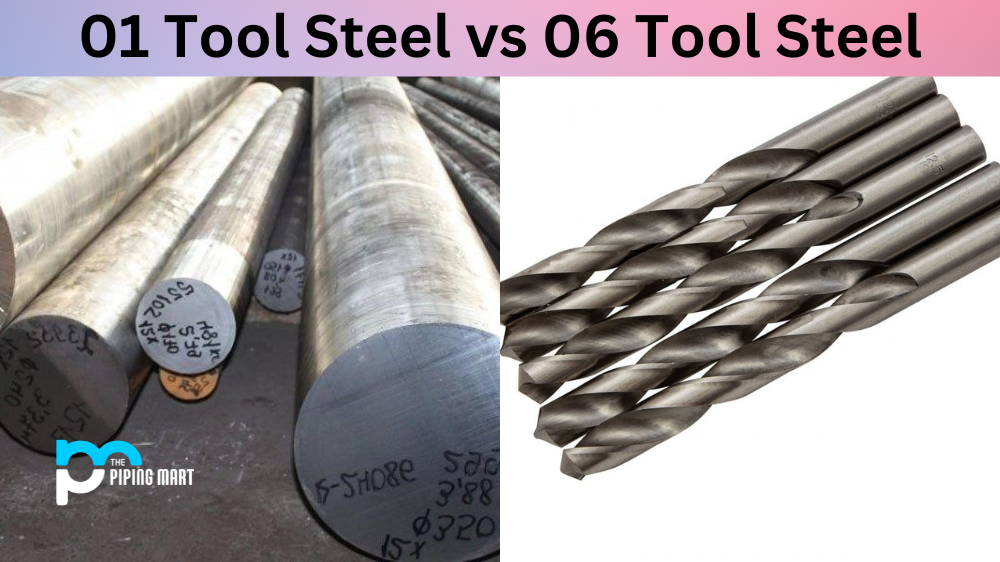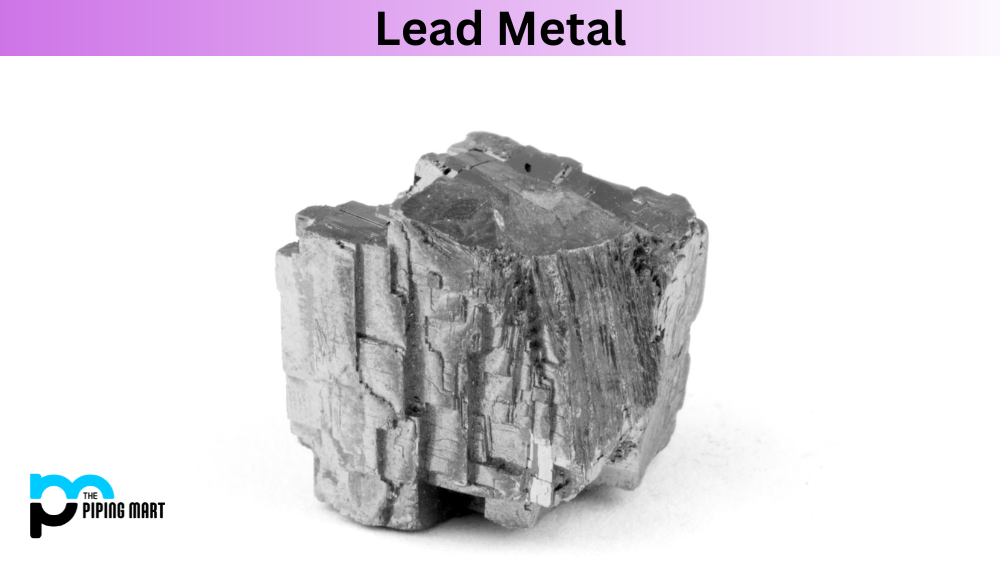Carbon steel pipes are a great option for many home and industrial projects. They’re strong, long-lasting, and incredibly versatile. But what exactly are carbon steel pipes, and what are they used for? In this blog post, we’ll break down the uses of carbon steel pipes so you can determine if they’re suitable for your project.
What is a Carbon Steel Pipe?
A carbon steel pipe is a type of metal piping made from an alloy of iron and carbon. It’s a strong, durable material resistant to corrosion and oxidation. Carbon steel pipes also have higher tensile strength levels than other types of piping materials, such as copper or aluminum. This makes them ideal for use in projects where strength is important.
Carbon Steel Pipes Properties
Corrosion Rate
The corrosion rate of carbon steel pipes depends on several factors. These include the environment in which the pipe is installed (indoors or outdoors), the type of water supply/contaminants present, and whether there is sufficient ventilation to keep oxygen levels low. Generally speaking, if all other factors are equal, indoor installations will have lower corrosion rates than outdoor ones.
Density
The density of carbon steel pipes varies depending on their grade and composition. Higher grades tend to have higher densities because they contain more alloying elements such as manganese and chromium. The average density of carbon steel pipes ranges from 7.85 g/cm3 to 8.05 g/cm3.
Standard Length
Carbon steel pipes typically come in a standard length of 6 meters (19 feet) for seamless pipes or 12 meters (39 feet) for welded pipes. However, some suppliers may offer customized lengths based on customer requirements.
Wall Thickness
Wall thicknesses for carbon steel pipes vary from 0.13 inches to 4 inches depending on the grade and application requirements. For example, thicker walls are usually required for heavy-duty structures like bridges because they can withstand greater amounts of pressure than thinner ones. On the other hand, thin walls are usually preferred for residential applications since they can be easily bent into desired shapes without much effort or expense.
Carbon Steel Pipes Uses
Carbon steel pipes can be used for many different applications. Some common uses include water supply lines, heating systems, fuel lines, oil pipelines, natural gas lines, and more. They can also be used in construction projects for ducts, drainage systems, structural support columns, and other structural components. Additionally, they are often used in manufacturing processes where temperature control or pressure containment is required.
- Carbon steel pipes are commonly used for transporting oil and natural gas.
- For example, carbon steel pipes are also used in the construction industry as scaffolding pipes.
- Carbon steel pipes can also be used for manufacturing furniture.
- Carbon steel pipes are sometimes used in the food industry.
- Carbon steel pipes can also be used in the medical industry.
- Building foundations.
- Transporting natural gases or oil.
- Boiler and condenser tubes.
- Transporting wastewater.
- Chemical Processing.
- High-pressure applications.
- Transporting sewage.
- Bollard construction.
Types of Carbon Steel Pipes Grades
A106 Grade B
A106 Grade B is a type of carbon steel pipe that is commonly used in power plants, oil and gas refineries, petrochemical plants, and boilers. The main difference between A106 Grade B and other grades of carbon steel pipe is the amount of manganese in the steel. Manganese is a chemical element that helps to improve the strength and hardness of steel.
A333 Grade 6
A333 Grade 6 is a type of carbon steel pipe that is commonly used in low-temperature applications such as the transportation of oil and gas. The main difference between A333 Grade 6 and other grades of carbon steel pipe is the amount of chromium in the steel. Chromium is a chemical element that helps to improve the corrosion resistance of steel.
API 5L X42
API 5L X42 is a type of carbon steel pipe that is commonly used in oil and gas transmission applications. The main difference between API 5L X42 and other grades of carbon steel pipe is the amount of carbon in the steel. Carbon helps to improve the strength and hardness of steel.
ASTM A53
ASTM A53 is a type of carbon steel pipe that is commonly used in structural applications such as bridges and buildings. The main difference between ASTM A53 and other grades of carbon steel pipe is the amount of manganese in the steel. Manganese helps to improve the weldability of steel.
ASTM A106
ASTM A106 is a type of carbon steel pipe that is commonly used in high-temperature applications such as power plants and oil and gas refineries. The main difference between ASTM A106 and other grades of carbon steel pipe is the amount of silicon in the steel. Silicon helps to improve the strength and hardness of steel.
ASTM A335
ASTM A335 is a type of carbon steel pipe that is commonly used in high-temperature applications such as power plants, oil refineries, and petrochemical plants. The main difference between ASTM A335 and other grades of carbon steel pipe is the amount of molybdenum in thesteel. Molybdenum helps to improve the corrosion resistanceofsteel
Benefits of Using Carbon Steel Pipes
Carbon steel pipes offer numerous benefits over other types of metal piping materials. They are reliable and cost-effective, which makes them an attractive option for many projects. Additionally, they require little maintenance because the material is durable enough to resist wear and tear over time. They also don’t need special coatings or sealants to protect them from external elements like rain or snow, which helps save time and money during installation and maintenance. Finally, they have a high level of recyclability, so you can reuse them in future projects if needed!
Conclusion:
Carbon steel pipes are an incredibly versatile option for many homes and industrial projects due to their strength, durability, affordability, and recyclability properties. Whether you need something for drainage systems, fuel lines, or anything else that requires strength or temperature control, carbon steel pipes will do the trick! Please do your research before purchasing carbon steel pipe materials to ensure that they fit your needs perfectly so you don’t waste time or money on unnecessary materials! With proper care and maintenance, these pipes should last a very long time!

Abhishek is a seasoned blogger and industry expert, sharing his insights and knowledge on various topics. With his research, Abhishek offers valuable insights and tips for professionals and enthusiasts. Follow him for expert advice on the latest trends and developments in the metal industry.




